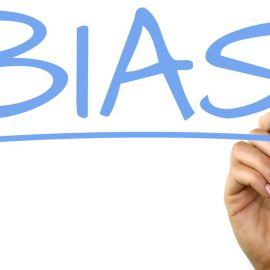

This article is an excerpt from the Shortform book guide to "The Six Pillars of Self-Esteem" by Nathaniel Branden. Shortform has the world's best summaries and analyses of books you should be reading.
Like this article? Sign up for a free trial here .
What do you do when things don’t go your way? Do you blame external circumstances, or do you take it on your own account? What does it mean to take responsibility for your life?
Taking responsibility, Nathaniel Branden says, means taking ownership of your life, behavior, and well-being. In other words, you stop the external factors for your misfortunes—you take responsibility where it’s due.
Keep reading to learn what taking responsibility is, why it matters, and how you can facilitate it by completing practical exercises.
Why Taking Responsibility Matters
Taking responsibility, Nathaniel Branden argues, is essential both to self-esteem and to your general well-being: If you don’t take responsibility, you won’t feel like you control your life—so you can’t feel capable or worthy, which self-esteem requires. For example, if you don’t take responsibility for your finances as an adult and instead rely on your parents to fund your life, you won’t feel like you can do things they dislike—so you won’t feel capable or worthy of living according to your own desires.
Additionally, you only act to raise your self-esteem if you understand that your self-esteem is your responsibility. Since Branden believes that your self-esteem depends on your behavior, he rejects the notion that you can develop and maintain self-esteem through external sources regardless of your behavior. For example, even if your parents instill in you high self-esteem, you might act in ways that contradict the six pillars and diminish your self-esteem. If you don’t acknowledge that you’re in control of your self-esteem, you won’t behave in the ways necessary to raise and sustain it.
Finally, Branden argues that taking responsibility compels you to treat others well. When you recognize that you have ownership over your choices, you also recognize that others have ownership over their choices. Therefore, you don’t treat others as tools for accomplishing your goals: If you want them to do something, you give reasons that appeal to them. For example, if you ask your parents to babysit your kids, you frame it as an opportunity for them to spend time with their grandkids—and you don’t get mad if they have other plans instead.
(Shortform note: One Harvard Business Review writer found that accepting others’ ownership over their choices ultimately benefited her. When she asked someone for help with her research, they refused—but they offered to introduce her to someone who might be interested. Since the writer was flexible and agreed, she ultimately got the help she needed.)
Exercises to Facilitate Self-Responsibility
To take more responsibility in your life, Branden recommends a nine-week sentence completion program.
Every weekday, follow the instructions listed below. Then, each weekend, review your answers and write six to 10 answers to the following: “If any of what I wrote this week is true, it might be helpful if I … ”
Week 1: Create and answer four sentence stems that address what taking responsibility means to you, how you feel about taking responsibility for yourself, and what happens when you do or don’t take responsibility for yourself.
Week 2: Create and answer four sentence stems that address what happens when you do or don’t take responsibility for your goals, what would happen if you took responsibility for your relationships, and in what ways you occasionally behave passively.
Week 3: Create and answer three sentence stems that address what would happen if you took more responsibility for ideas your parents taught you and for your acceptance or rejection of those ideas and what would happen if you were more aware of the ideas that drive you.
Week 4: Create and answer four sentence stems that address what happens when you do or don’t take responsibility for your happiness and what happens when you do or don’t take responsibility for whom you choose to spend time with.
Week 5: Create and answer four sentence stems that address what happens when you do or don’t take responsibility for what you say to others, what happens if you grow more aware of what you say to yourself, and what happens when you take responsibility for what you say to yourself.
Week 6: Create and answer four sentence stems that address the ways in which you increase your helplessness, depression, and anxiety and what happens when you take responsibility for the behaviors that increase your helplessness.
Week 7: Create and answer five sentence stems that address what happens when you take responsibility for the behaviors that increase your depression and anxiety, what would happen if you felt prepared to face your responsibility, what you have trouble acknowledging, and what happens when you take responsibility for how you live.
Week 8: Create and answer four sentence stems that address the situations in which you feel like you’re taking the most or least responsibility and what would happen if you could live for yourself and ignore others’ expectations of you.
Week 9: Create and answer four sentence stems that address what would happen if you admitted that you could alter your own life, what would happen if nobody could save you from your own life, what would happen if you took responsibility for your life, and what you’re starting to notice.
| Alternative Ways to Facilitate Self-Responsibility In addition to Branden’s sentence-completion exercises, there are several practices you can do to encourage greater self-responsibility in your life. One method is to tell yourself different stories about why you’re not acting in service of goals. If you’re not self-responsible, you’ll tell yourself BED-time stories: You’ll blame others, make excuses, and practice denial. Such stories give you an excuse to do nothing to improve your life. If you find yourself using phrases like “If only” or “I will when X happens,” you may have fallen for such stories. To take responsibility, replace these stories with OAR-some stories: Take ownership of your choices, hold yourself accountable, and take responsibility. Since you’ll likely struggle to change your thought patterns, consider also getting help from a mental health professional. Another way to encourage greater self-responsibility in your life is to stop complaining. Complaining is a form of evading responsibility because you focus on the negative circumstances around you. Instead, when bad things happen to you, focus on the positive by asking yourself, “What’s the lesson in this?” Alternatively, you could also take responsibility by trying to fix the situation in some way. A third strategy is to be present. By paying more attention to your thoughts, you’re more likely to notice when your thinking evades responsibility—and when this happens, replace these thoughts with ones that take responsibility instead. |

———End of Preview———
Like what you just read? Read the rest of the world's best book summary and analysis of Nathaniel Branden's "The Six Pillars of Self-Esteem" at Shortform .
Here's what you'll find in our full The Six Pillars of Self-Esteem summary :
- Exactly how to behave to improve your self-esteem
- Why you need to take responsibility for your life and actions
- Why so many self-esteem techniques don't work






